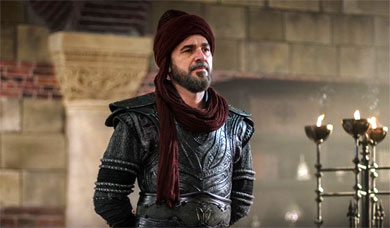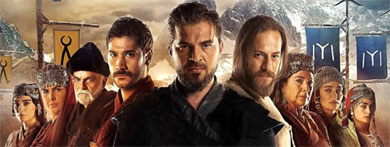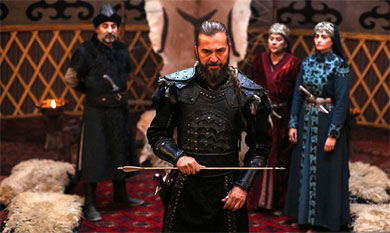
By Arshad Alam, New Age Islam
12 June 2020
The power of any myth lies in its ability to become common sense of people. That’s why religion, which has an enormous influence on the lives of people has been the repository of many myths for centuries. This, however, is not to say that myths are only religious.

The American myth as the land of equality and opportunity held out for decades before being periodically chipped away by anti-racist movements. And the very secular myth that the market remains the ultimate arbiter of free exchange still remains hegemonic despite repeated state led rescues. Some myths, like fairness creams, persist more than others, partly because society associates and relates with a certain immediacy with the values encoded in such myths.

Those who understand myth in opposition to factual history miss the point that the two are related in important ways. Myths move history in more ways than one. Myths also have the capacity to change history and, in that sense, they have the potential to re-order our contemporary surroundings. An anthropologist once witnessed a ‘novel’ form of punishment in the village in which he was conducting his research. A thief, after getting caught, was being paraded on a donkey with his face blackened. In his years of interaction with this village, he had never come across this form of punishment. He inquired since when this form of punishing a thief had become a norm in the village. He was told that it has always been like this, that this practice was part of their ‘tradition’. Not satisfied with such an explanation, he made his own inquiries only to come to a conclusion that this form of punishment was adopted after a Bollywood movie screened in the village showed this exact scene! Myths therefore, are not just about the past; they fundamentally affect our present too. This is not to say that myths and history are the same but to underline the importance of myths for any serious analysis of cultural or political issue.
An involved debate has been going on about the Netflix series Ertugrul in much of the Muslim world. The series has broken all viewing records in Pakistan and I suspect Indian Muslims are equally engrossed in this fanciful story of a man whose political and religious activities will eventually pave the way for the formation of Ottoman empire. Throughout the series, we are shown, how different Turkish tribes, after being infused with the spirit of Islam, not just change themselves but also the world around them. Recently, Pervez Hoodbhoy, the admirable dissenter from Pakistan, wrote a scathing piece on how the series was ‘distorting history’ and alluded to it being sponsored by the Turkish state. On both these counts, Hoodbhoy is bang on. The series cannot match up to historical scrutiny as there is considerable ambiguity regarding the main character and the sequence of events depicted in the series. Hoodbhoy is also right in alluding that the series is sponsored by the Turkish state and as such is more of propaganda for the Erdogan government. Indeed, the Erdogan regime has been trying hard to position itself as the new centre of the Muslim world, thereby arousing considerable antagonism from the Arab word. As such, there is a strong possibility that the series might even have been funded by the Turkish government. However, if Europeans can give us James Bond and the Americans can give us Mission Impossible, then why are we so upset if Erdogan is giving us Ertugrul? Empire and propaganda, power and mythology, have always gone hand in hand.

And that’s why Hoodbhoy misses the whole politics of Ertugrul. This Netflix series does not claim to be a historical account of events, rather it says that it is ‘inspired’ by events in Turkish history. Thus, whether it is historical or not is besides the bigger arguments which are being made through this series. The larger narrative within which the series should be viewed is that probably for the first time, Muslims are representing themselves in this fashion. The oeuvre of Orientalism, embedded in an asymmetry of power between the Muslim world and Europe, produced images and literature which largely caricatured Muslims. Much of the Muslim world, under colonialism, hardly had any opportunity to represent themselves.
Although many things changed in the post-colonial world order, the representation of Muslims continued to be dominated by the West. And thanks to a unique and nonsensical reading of Islam which only Arabs are capable of, much of the Muslim world developed a deep antipathy towards images resulting in creative minds stultifying within many Muslim nations. Certainly, the likes Mohsen Makhmalbaf depict Iranian society like no other and the profound wisdom of Orhan Pamuk invite Muslims to look deep into the lost world of Muslim pluralism, but they are seen and read more in the Western world than in their own contexts. Herein lies the importance of Ertugrul; it is arguably the first self-representation of Muslims which is enjoying such a mass following in the Muslim world. This in itself need to be celebrated.
Those who have found only violence and beheadings in the series need to look closer. Muslim women depicted in the series are strong willed, fighters and capable of taking independent decisions. This is in stark contrast to the image of the oppressed Muslim woman produced by the West. The series purposefully inverts the existing paradigm: Christian women during this period are seen as hopelessly dependent on men, lacking a voice of her own. Now, one can certainly debate the facticity of this representation. But Ertugrul is not about facts; it is a narrative myth which subverts the existing balance of power between the Orient and the Occident. The irate reception of Ertugrul in the Western world is understandable because it has disrupted their worldview. Through Ertugrul, the Orient is today defining the Occident and that is too much for some to handle.
Part of the appeal of a myth is that unlike history, its boundaries are porous. People participate in and redefine myths, and at times, change social practices by deriving legitimacy through such myths. As Muslim society is consuming these images of strong women leaders, there is a strong possibility that a section will start questioning our current attitude towards women. This can possibly lead to a healthy debate about gender within Muslim society, which is much needed but nearly absent. And I am sure that critics like Hoodbhoy will not forget the role of Ertugrul when this much required social churning starts.
Arshad Alam is a columnist with NewAgeIslam.com

No comments:
Post a Comment